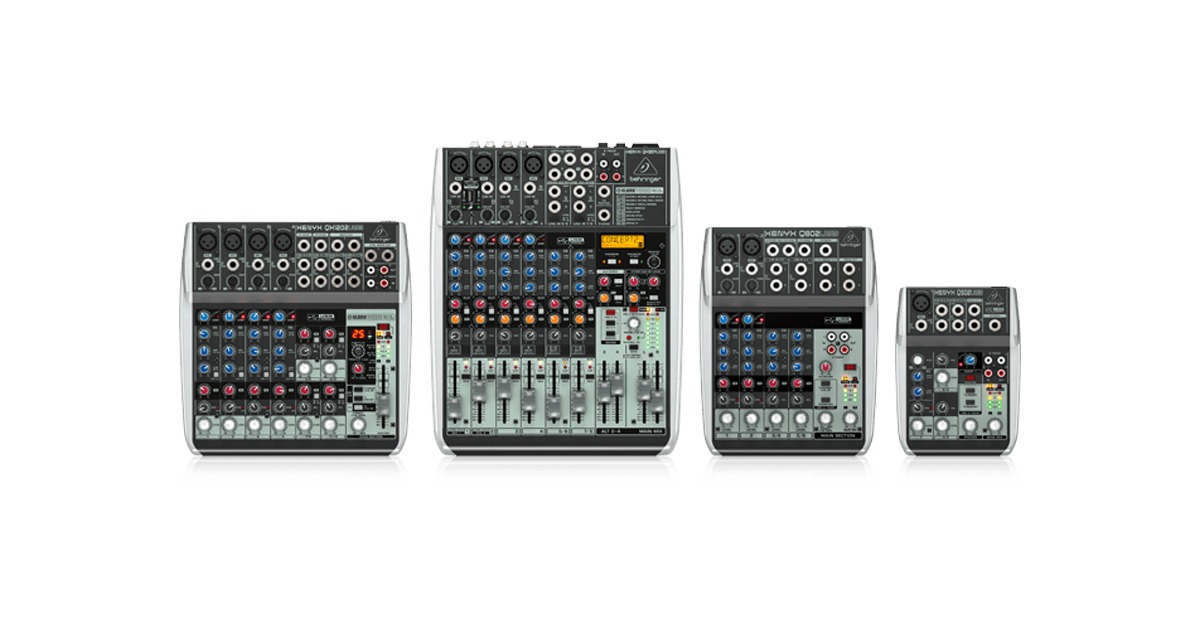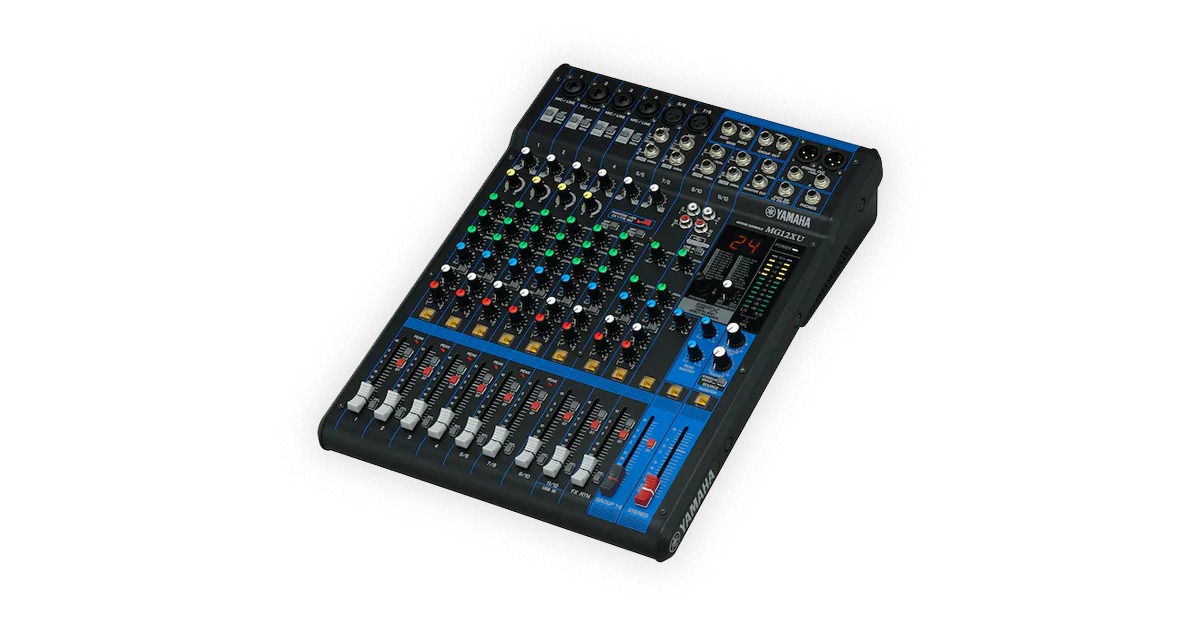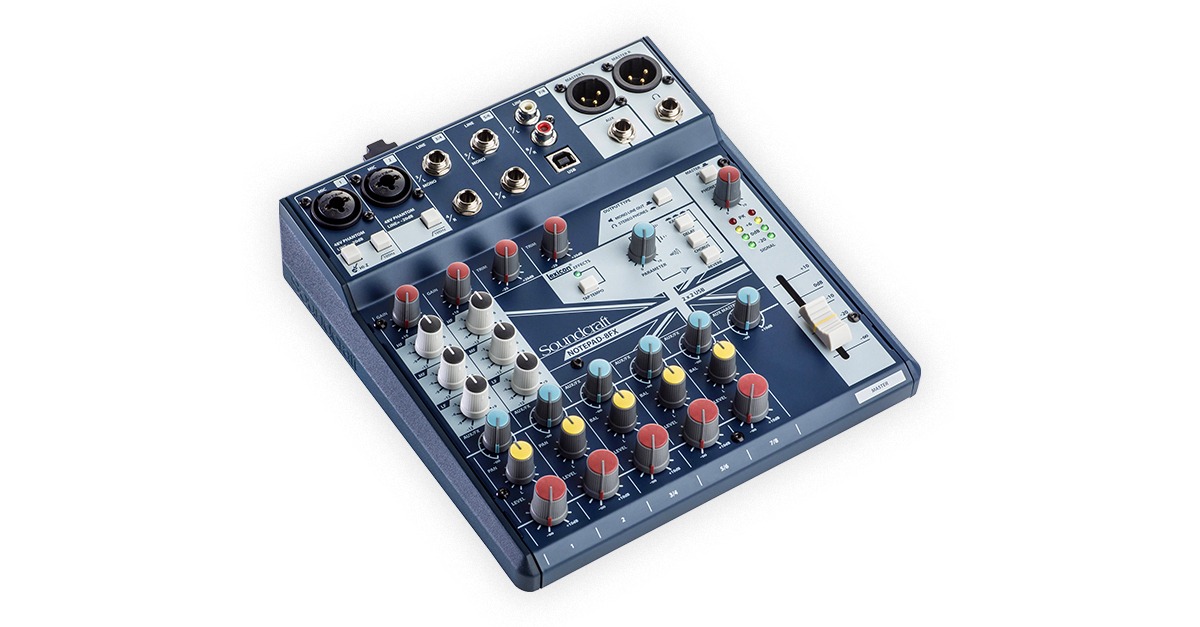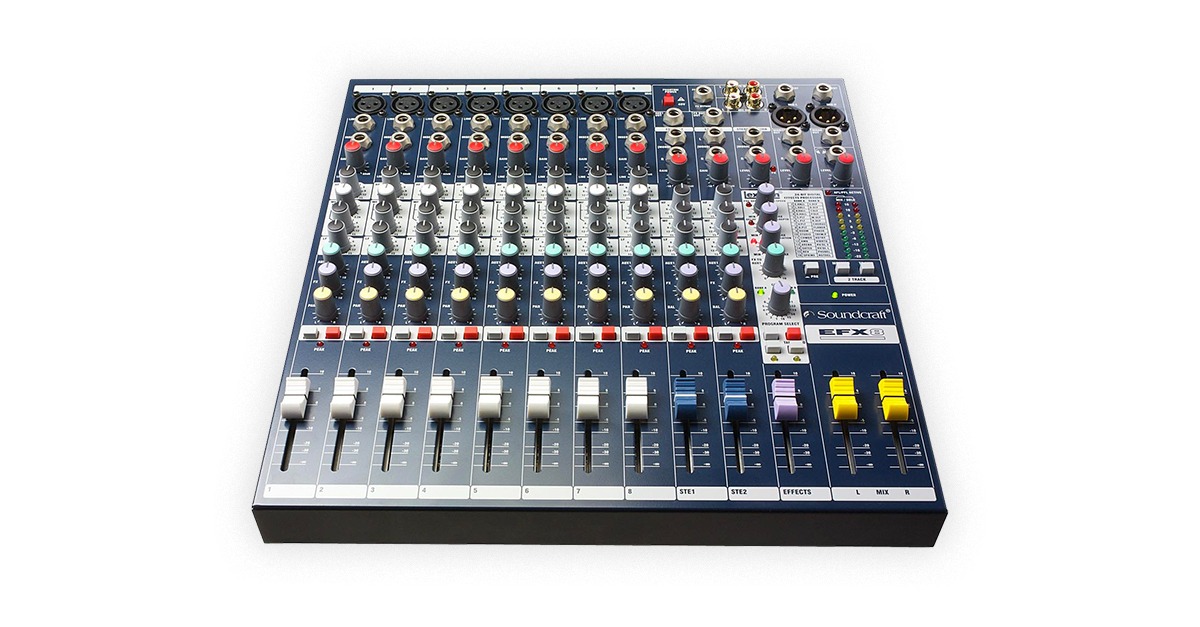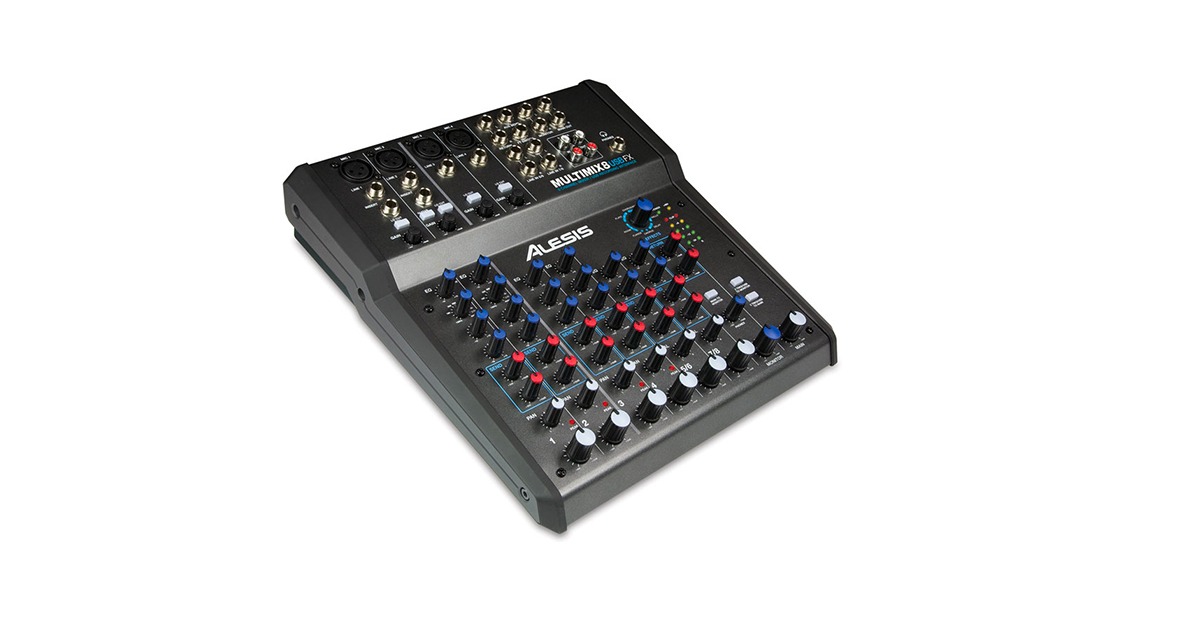In the old days, you needed an analog mixer or studio console to mix music.
But even though almost every music producer now works in a DAW, a hardware mixer is still a valuable tool in a home studio.
So what exactly is an analog mixer? Why should you use one and which ones are the best?
In this article I’ll explain everything you need to know and give recommended options for all budgets.
Hot tip: Shopping for more home studio studio equipment? Get the best gear roundups right in your inbox with the LANDR Newsletter
What is an analog mixer?
An analog mixer is a tool used in recording and live sound that amplifies signals from microphones or instruments and blends them together.
Most analog mixers feature onboard mixing tools like EQ, panning and effects to make sure each input can be heard clearly in the mix.
At the end of the signal flow, individual mixer tracks are mixed down to a single stereo output to be passed to a recording device, PA system amplifier or headphone output.
In addition to the main outputs, many mixers offer flexible signal routing options like aux sends, groups and inserts.
Analog mixers come in all shapes and sizes, but the most common type are the small and medium sized desktop units used in live sound and home recording.
Why use an analog mixer?
Analog mixers have many uses in a home studio.
If your setup features lots of inputs from music production gear like synths, samplers, drum machines or grooveboxes, an analog mixer is a natural choice to connect it all.
If your setup features lots of inputs from music production gear like synths, samplers, drum machines or grooveboxes, an analog mixer is a natural choice to connect it all.
This way you can work with your equipment without using a computer and create basic mixes to hear your tracks on headphones or studio monitors.
It’s the reason why analog mixers are frequently found in the live setups of musicians who perform with this type of gear.
When it’s time to record, analog mixers can act as problem solving tools. Here a few ways you can use them in your studio:
- Add extra channels to your setup
- Mix multiple sources down to a single stereo line
- Add flexibility for headphones and monitor mixes
Finally, if you ever play live with other musicians, a mixer is the perfect tool for plugging multiple sources into PA speakers for a jam session or live show.
Hot tip: While it might seem like an analog mixer is a home studio essential, your audio interface can play many of the same roles more effectively. Think twice before buying an analog mixer if you’re mainly using it to record.
The 10 best analog mixers
Analog mixers come in just about every configuration imaginable. Most brands offer a base model that comes in a range of sizes.
Listing each individual unit wouldn’t make much sense, so this guide will focus on popular product lines with features listed for each.
In fact, features are the main factor that separates different products in this space, so it’s worth taking the time to make sure you know what you need.
Here are the main features to be aware of as you shop:
- Channel count—how many inputs you can plug into the mixer.
- Mic preamps vs. line inputs—how many inputs have mic preamps
- EQ—how many bands of EQ are available and whether they are fixed or fully parametric
- Aux sends—how many send effects or monitor mixes you can use
- Inserts—whether you can plug processors into individual mixer channels
- Direct outs—if the mixer’s mic preamps have individual line level outputs
- Built-in effects—if the mixer features onboard effects like delay and reverb
- USB I/O—whether the mixer can be used as an audio interface
With all that out of the way, here are the 10 best analog mixers for home studio:
1. Allen and Heath ZED
Channels: From 6 up to 36
Effects: Only on -FX models
USB: Yes (except ZED compact series)
Allen and Heath is a respected manufacturer of audio mixers for every application. The Zed series is their most affordable line, with features designed for live and recording.
It includes a premium Allen and Heath preamp design as well as USB audio interface capabilities and excellent effects.
The series spans everything from the ultracompact ZEDi range to the massive 4-bus ZED Max units.
2. Mackie VLZ4
Channels: From 4 to 32
Effects: No
USB: No
Mackie is a big name in compact mixers. Their VLZ (Very Low Impedance) technology powers this flagship range of compact and desktop mixers.
The VLZ series focuses on the features that matter with a huge range of form factors, from a mere four channels to enormous 32 input desks.
3. Behringer Xenyx
Channels: From 2 to 24
Effects: Yes
USB: Only on -USB models
Behringer’s line of compact mixers is the most affordable on this list. But that doesn’t mean they only offer budget performance.
It’s hard to beat capable features like onboard dynamics, multi-effects and USB interface at any price, so the Xenyx series is worth a look.
4. Mackie ProFX
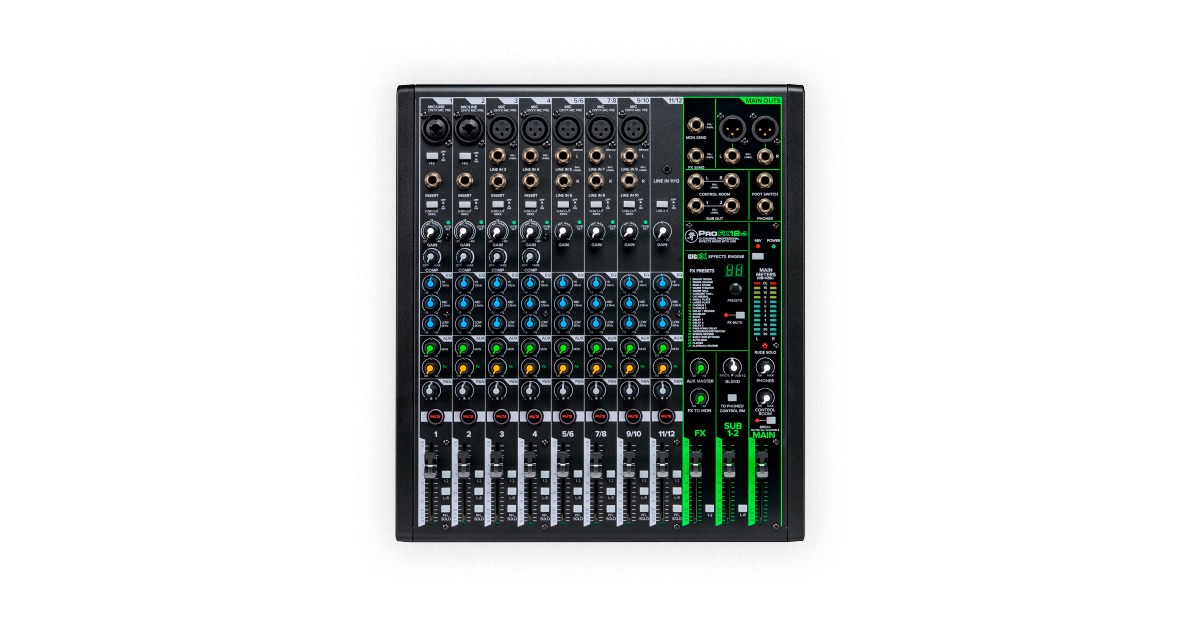
Channels: From 6 to 30
Effects: Yes
USB: Yes
The Mackie ProFX line is an affordable mixer choice that does it all. When you need more than just channels and faders, ProFX gives you the extra mixing options like onboard effects, Hi-Z inputs and USB I/O.
5. Yamaha MG series
Channels: From 6 to 20
Effects: Yes
USB: Yes
Yamaha’s MG series is another option for quality mixing in small and medium form factors.
Analog mixers feel like a throwback to the early days of recording, but they can help solve problems in a modern home studio.
The MG mixers feature some handy conveniences like one knob compression and universal power supplies.
6. Soundcraft Signature
Channels: From 10 to 22
Effects: Yes
USB: Yes
The Signature series is the latest in a long line of respected mixers from Soundcraft.
It features their high performance Ghost preamps, built-in Lexicon reverb and a practical 2-in/2-out USB interface.
7. Mackie Onyx
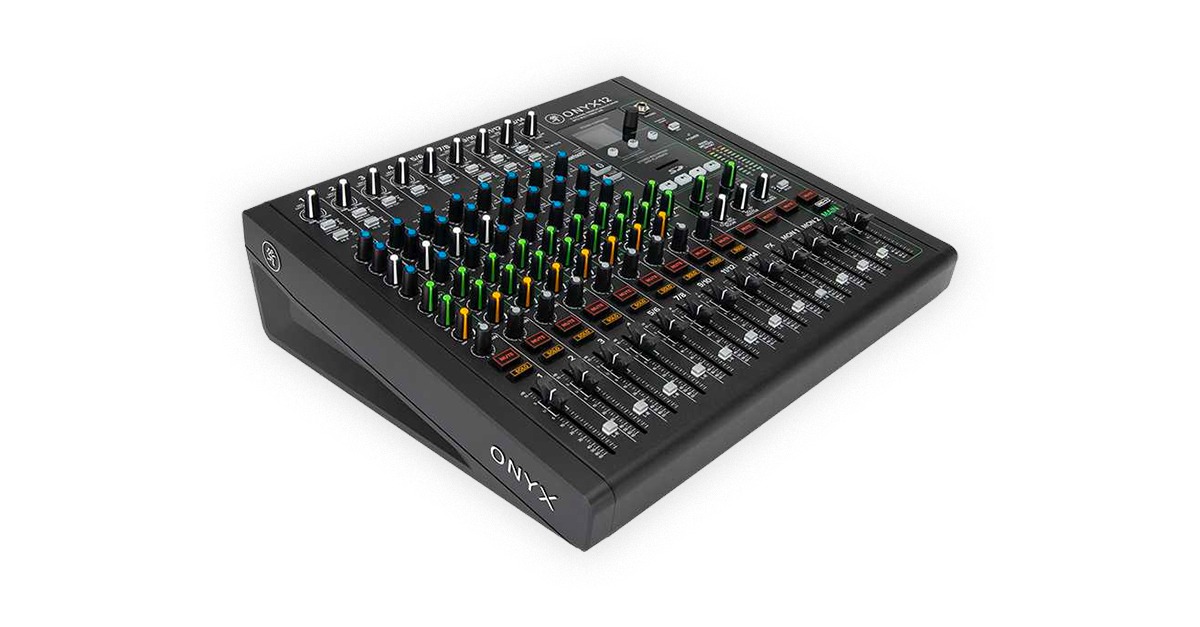
Channels: From 8 to 24
Effects: Yes
USB: Yes—multitrack
The Mackie Onyx series is the brand’s flagship line of hybrid mixers for recording.
They provide signature clean gain via the Onyx preamps, multitrack digital I/O over USB, musical analog EQ and studio quality digital effects.
8. Soundcraft Notepad
Channels: From 5 to 12
Effects: Yes
USB/Recording: Yes
Soundcraft’s Notepad series is an ultracompact range of mixers with plenty of features for recording use.
When you need pro quality in a small footprint, the Notepad mixers are worth a look
9. Soundcraft EFX
Channels: 8 or 12
Effects: Yes
USB: No
The Soundcraft EFX range of analog mixers is another solid choice for live and studio mixing duties.
With built-in Lexicon effects, channel insert points and musical EQ, the EFX series mixers offers great features and performance.
10. Alesis Multimix
Channels: From 4 to 12
Effects: Yes
USB: Yes
The Alesis Multimix series were some of the first USB-enabled mixers on the scene.
They’re still a solid choice for recording and live use. The Mulitmix 12R is unique on this list for being easily rackmountable in a 2u space.
Mix and match
Analog mixers feel like a throwback to the early days of recording, but they can help solve problems in a modern home studio.
When you need to route a few inputs, plug into a PA or take your rig on the road, a good mixer can help.
If you’ve made it through this article you’ll have a great start for choosing the right analog mixer.

